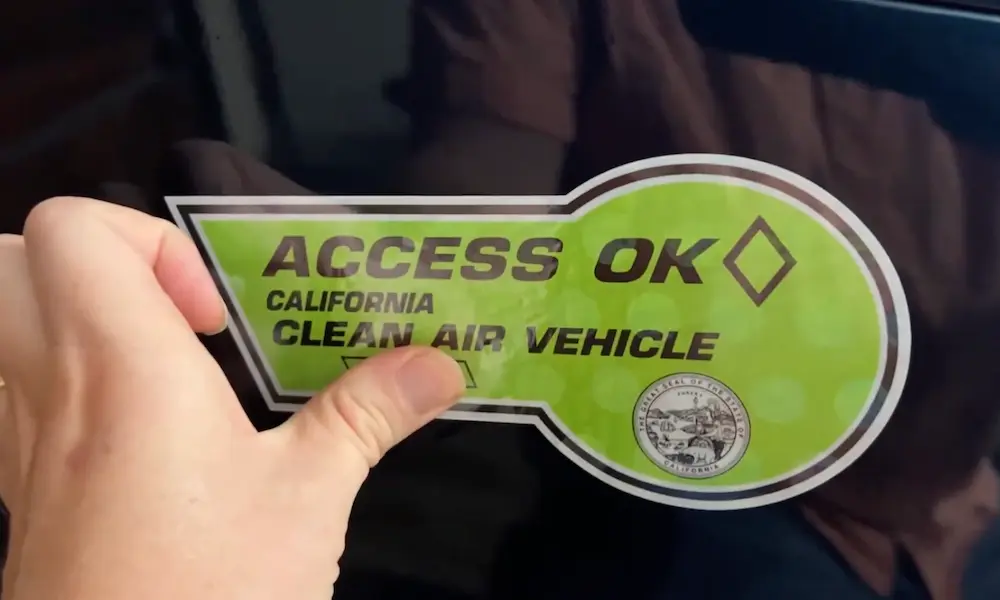Need help understanding Connecticut’s emissions requirements? Vehicles in Connecticut must undergo emissions testing every two years. This ensures your car meets EPA standards and keeps the air clean. The DMV has made this process easy by partnering with over 200 private service facilities. Don’t stress about it; we’re here to guide you through all the steps to keep your car compliant.
Overview of CT Emissions Requirements
The Connecticut Emissions Program ensures that vehicles on the road meet specific air quality standards to reduce pollution. This program is essential to keep the state’s air clean and healthy for all residents.
Legal Framework and EPA Involvement
The Connecticut Emissions Program operates under state and federal laws, primarily aimed at reducing air pollution. The Environmental Protection Agency (EPA) sets national standards for vehicle emissions to protect public health and the environment. Connecticut aligns with these standards and sometimes implements additional measures to address local air quality issues. This legal framework ensures that cars and trucks on the road contribute less to pollution, making the air you breathe cleaner and safer.
Criteria for Emissions Testing
Emissions testing in Connecticut is required for most vehicles every two years. This includes cars and light-duty trucks, which contribute significantly to air pollution. The test checks the engine and emissions control systems to make sure they are working correctly. If your vehicle fails the test, you will need to make the necessary repairs and retest. Keeping your vehicle well-maintained helps it pass the emissions test and keeps the air cleaner.
Types of Vehicles Subject to Testing
Most vehicles registered in Connecticut need to go through emissions testing. This includes:
- Cars
- Light-duty trucks
Some vehicles are exempt from testing. These are:
- Composite vehicles
- Vehicles with dealership plates
- Vehicles not designed for highway use
Knowing whether your vehicle is subject to testing helps you stay compliant with state laws and avoid penalties.
Emissions Testing Process
Knowing what to expect for the emissions testing process can help you prepare your vehicle and ease any worries about meeting state requirements.
Preparation for Emissions Test
To get ready for an emissions test, ensure your vehicle’s engine is in good condition. This means checking the oil, replacing any worn-out parts, and making sure your fuel tank is properly sealed.
You should also drive your vehicle for about 20 minutes before the test. This warms up the engine, which can improve the results.
Gather all necessary documents, including your vehicle’s registration and any previous emissions test results. Having everything ready will make your visit to the test center smoother.
Step-by-Step Testing Procedure
At the test center, a technician will first check your vehicle’s identification and paperwork. Then, they perform the On-Board Diagnostic (OBD) test. This test connects to your vehicle’s computer system to monitor engine and emission control systems.
The technician may also perform a tailpipe test. In this test, a probe is inserted into the exhaust pipe to measure gases like carbon monoxide and hydrocarbons.
Once the tests are completed, the technician will provide you with a report detailing the results. The entire process usually takes about 30 minutes.
After the Test: Understanding the Results
After the emissions test, you’ll receive a report which shows whether your vehicle passed or failed. If your vehicle fails, the report will list specific issues that need fixing.
You may need to repair your vehicle and retest it. Some states offer a free retest if you return within a certain time frame, so check for any such policies.
If your vehicle passes, you often receive a sticker or document to prove it. Keep this proof in your car to avoid any compliance issues with the law.
Scheduling and Test Locations
When it’s time for your vehicle’s emissions test in Connecticut, scheduling an appointment and finding a certified test center are key steps. Knowing how to schedule and where to go makes the process smoother and quicker.
How to Schedule an Emissions Test
To schedule an emissions test, you can call the emissions hotline at 1-877-4MYCTVIP (877-469-2884) from Monday to Saturday, 8 a.m. to 6 p.m. They will help you find a suitable date and time for your test.
You can also book an appointment online through the CT Emissions Program website. Here, you can enter your vehicle details and choose a test center that fits your schedule.
Your vehicle will generally need to be tested every two years. You’ll receive a notice in the mail from the DMV reminding you of the upcoming test date. Prompt scheduling can help avoid late fees and ensure your vehicle remains compliant.
Finding a Certified Test Center
Connecticut boasts over 200 certified test centers. These centers are private automotive service facilities conveniently located throughout the state. There are two types of test centers:
- Full-Service Test Centers: These perform all required tests for any vehicle regardless of fuel type or model year.
- OBD Plus Test Centers: These are specialized and may have limitations on older models or certain fuel types.
To find a test center near you, visit the CT Emissions website. Enter your zip code, and a list of nearby certified centers will appear. Each listing includes the center’s address, phone number, and any specific testing capabilities they have.
Choosing a test center that’s close to you can save time. Always make sure the center is certified to avoid issues on test day.
Compliance and Exemptions
Understanding the requirements for emissions testing in Connecticut is essential for vehicle owners. You should know if your vehicle is exempt from testing or if you might qualify for an extension or waiver.
Exemptions from Emissions Testing
Certain vehicles in Connecticut are exempt from emissions testing. If your vehicle is younger than four model years old, it does not need to be tested. Older vehicles, specifically those from model year 1998 and earlier, are also exempt.
Additionally, vehicles with a gross vehicle weight rating (GVWR) of 10,001 pounds or more, such as some larger trucks, do not need to undergo emissions testing. If you own a full electric-powered vehicle (non-hybrid) or a composite vehicle titled as such, you are also exempt from this requirement.
Extensions and Waivers
In some cases, you might need more time to comply with emissions testing. Connecticut allows for time extensions if you can’t get your vehicle tested by the deadline.
If you face economic difficulties, you might be eligible for an economic hardship waiver. This can provide relief if repairing your vehicle to meet emissions standards is too costly. To apply, you should reach out to the DMV Emissions Division at (860) 263-5611 or (860) 263-5333.
For questions about diagnostic or repair waivers, call the Connecticut Emissions Program at (877) 469-2884.
Handling Emissions Test Failures
If your vehicle fails its emissions test, it’s important to know why it failed and what steps to take next. You’ll need to address the issue, get your car repaired, and then retested. Here’s what you need to know to get back on the road legally.
Common Reasons for Failure
Vehicles can fail emissions tests for several reasons. A common issue is a faulty oxygen sensor, which affects your car’s fuel efficiency and emissions. Another reason could be a malfunctioning catalytic converter, which helps reduce harmful emissions.
Sometimes, a vehicle may fail due to an issue with the engine’s computer system. It might need to be reset or updated. Also, dirty or clogged air filters can result in excessive smoke emission, causing a test failure.
Steps to Take After a Failed Test
Once you know why your vehicle failed, you need to address the problem promptly. Start by getting a diagnostic check from a qualified mechanic. They can pinpoint the exact issue and recommend necessary repairs. Make sure to get a detailed invoice for any work done, as you may need it for retesting.
After repairs, you should take your car for a free retest within 60 days at any test center. If you fail to do this within the specified period, you may face an emissions late fee according to the DMV regulations.
Retesting Your Vehicle
When your vehicle is ready for a retest, make sure to have all necessary documents, including your repair receipts. Retesting is usually free if done within the 60-day period following the initial test failure. If you need a second retest, a $20 fee might apply, as outlined by CT Emissions.
During the retest, the test center will check to see if the issues that caused the initial failure have been resolved. If your vehicle passes, you’ll receive the necessary documentation to confirm compliance. Keep this documentation for your records and ensure your vehicle continues to meet emissions standards.















